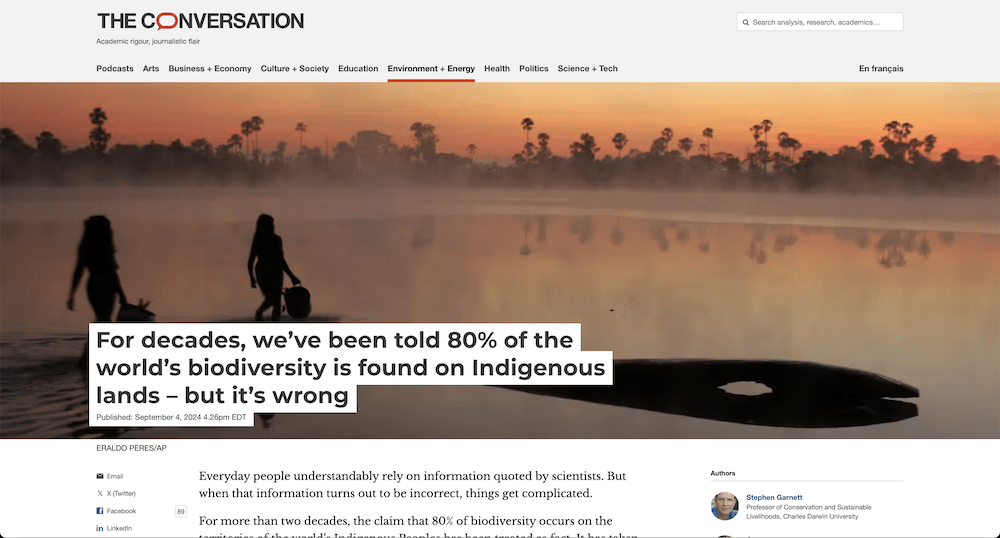Every week, we’re going to spotlight an event or breaking news, and this week it’s an important article from The Conversation.

New research is calling into question how much biodiversity is found on Indigenous lands, raising bigger questions about the research that went into determining the number in the first place, and the ease with which society ran with it.
The article’s authors also discuss the possible ramifications of the widely accepted and circulated 80% number – and some of their conclusions might surprise you.
Look, before we can act more creatively as a society, we must think more critically – and, far too often, we don’t. Take a read and see what conclusions you draw from this new research, as well as the authors’ analysis of the situation.
Also ask yourself this: How often do we all accept research at face value without digging deeper? How often are we all willing to look past rigorous fact in pursuit of information that will smooth a narrative or advance an ideal we believe in?
Uncomfortable questions, and to a degree, we’re all guilty of being part of the problem. That doesn’t make us evil. As former Alberta cabinet minister Donna Kennedy-Glans says in her podcast with Nature Labs, who has the time to drill down on every fact and every subject we encounter online in a day?
But if we – citizens, media, researchers, scientists, policy-makers – don’t dig deeper more often, with time, we contribute to the erosion of truth itself. That sows the seeds of the mistrust we see in our society today. And the consequence? Our democracy frays.
Sorry for getting heavy on you, but whether the subject of this article interests you or not, it’s an important read and an even more important reminder that we must all do better.
A final note:
If you’re not aware, The Conversation is an academic storytelling hub that consistently ranks as one of the more trustworthy and balanced information sources globally. Some list the platform as reliable, but left-leaning given their interest in environmental stories. If this alone is the reason for the designation, we reject it.
Nature itself shouldn’t have a political affiliation; it’s the solutions to challenges at the intersection of people and nature that are political. In other words, if a person or platform advocates for one-set of solutions over another, that showcases a political bias. But if an entity is simply discussing research or different perspectives on a given subject, that alone doesn’t indicate bias.
This is a subtle, but important distinction we want to underscore.